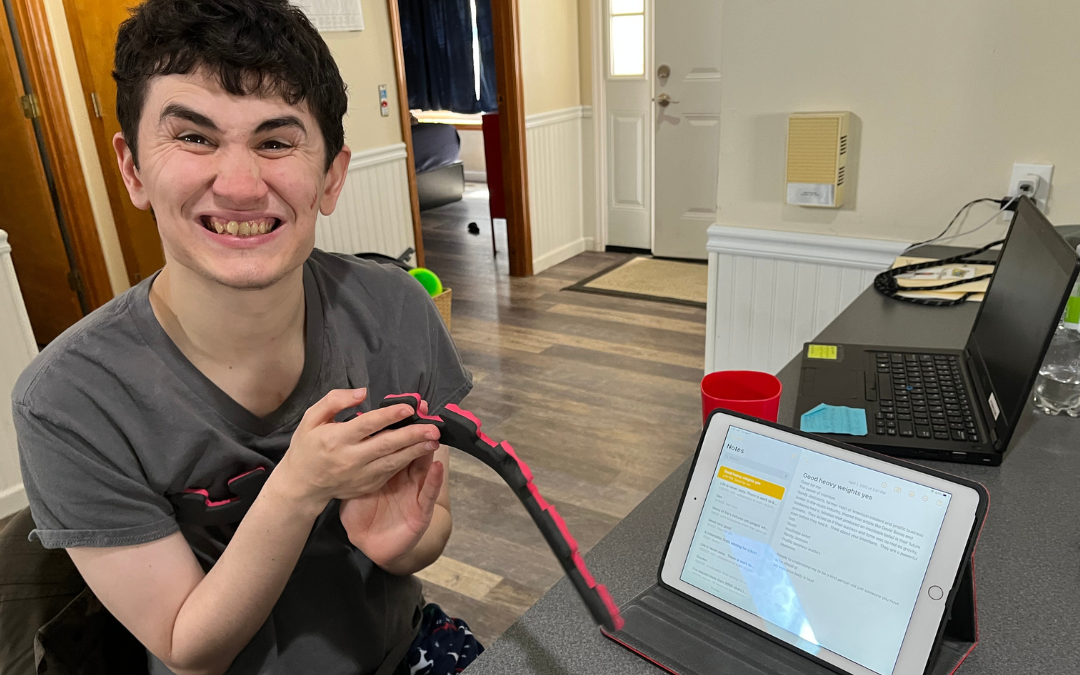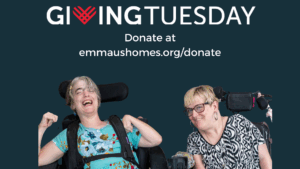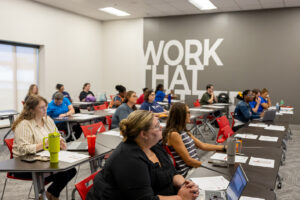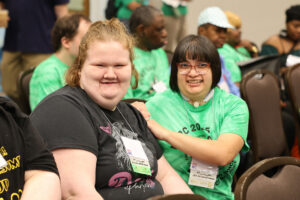Written by Dr. Rachel C. Morgan
In February of 2019, Missouri announced its initiative to become a “Technology First State”, as the Direct Support Personnel crisis continued to rise. Amidst the COVID pandemic, an increase in isolation of adults with disabilities became a glaring and immediate concern. Suddenly, our world had to convert to engaging in all our daily routines through technology. Working, shopping, education, banking, connecting with family and friends, etc. all were being accomplished utilizing technology. Where did this leave adults with disabilities that have high support needs? Do they have access to technology? How are they currently using technology in their everyday lives?
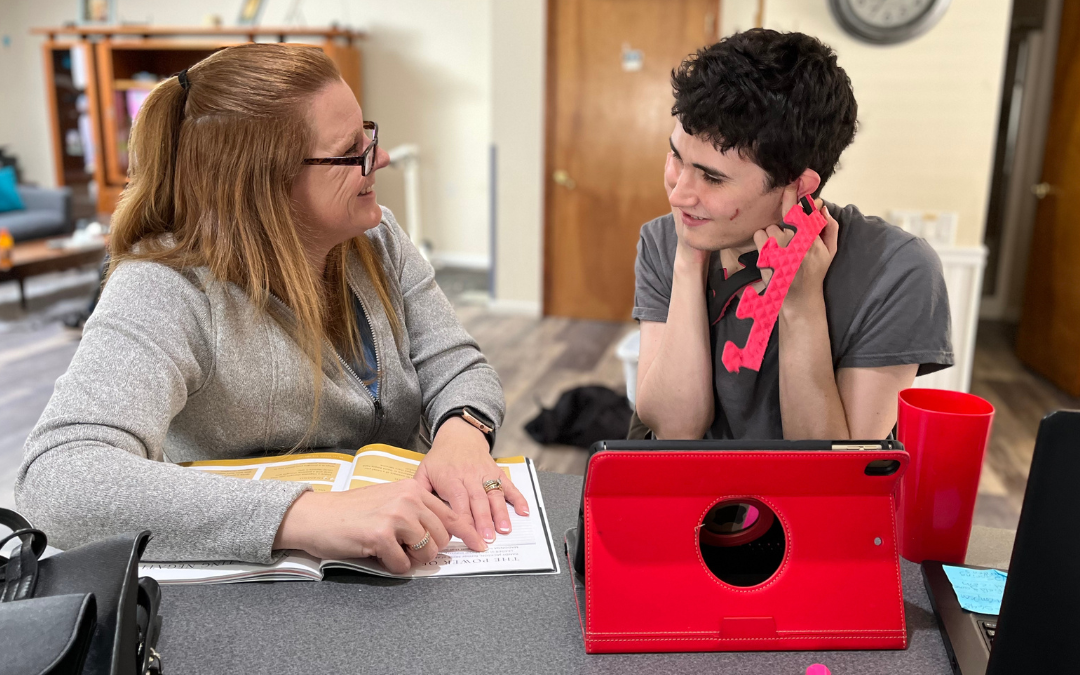
The Adam Morgan Foundation’s (AMF) Technology 4 Independence pilot program was launched, with the support of the Developmental Disabilities Resource Board, in the fall of 2020. As we began the assessment process, there were two focus areas that needed to be addressed before any type of technology could be introduced. How self-directed the clients and staff were in their own learning as well as what the current beliefs, values, and attitudes of staff towards their clients’ abilities were.
Technology is an amazing tool that can enhance anyone’s life; however, you must engage actively with the tools for them to be effective. Many times, there is a lack of belief in oneself or from staff when it comes to a person with disabilities. Looking at the current mindset of both the clients and staff was at the core of introducing and maintaining technology as an effective tool in building self-confidence, self-determination, and increased independence.
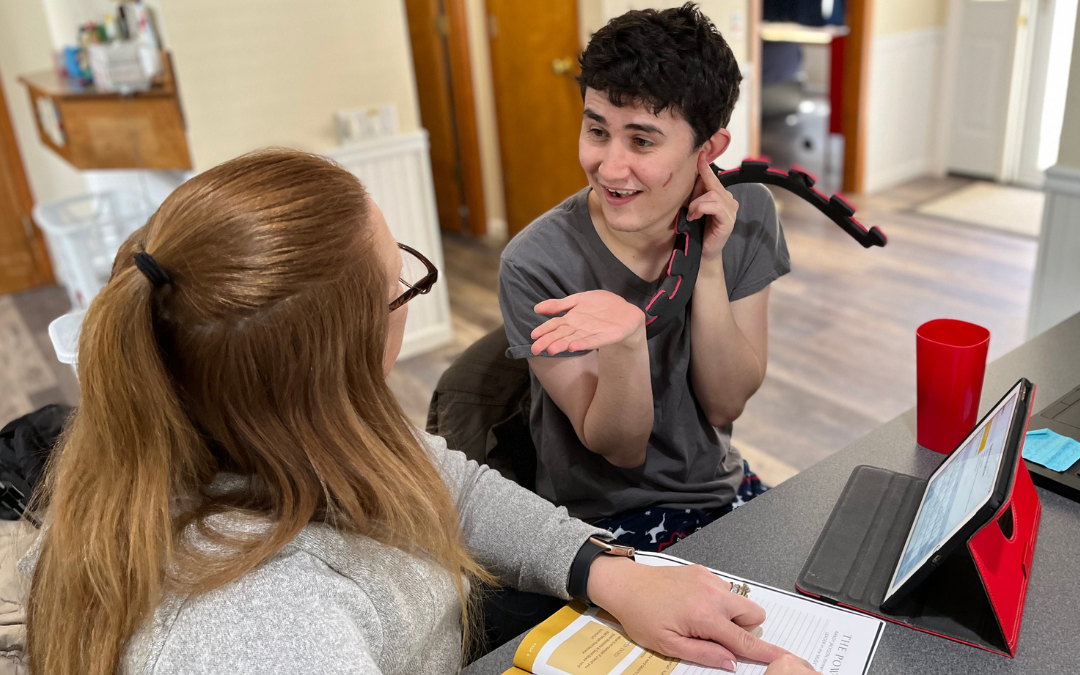
AMF has engaged 10 Emmaus clients over the past 18 months in the Technology 4 Independence program. Pre-assessment results showed lower scores in four key areas:
- Initiative and independence in learning
- Love of Learning
- Creativity
- Positive orientation to the future
This information assisted our staff in focusing on making sure the technology goals the clients wrote for themselves were meaningful and positive working towards real-life adulting functional skills. The Pre-results for the staff showed lower scores in three key areas:
- Difficulty with understanding each other’s point of view.
- Don’t ask what the clients indicate their learning needs are.
- Don’t have the confidence that the clients will develop the skills they need.
A focus was put on supporting the staff and clients to revisit their relationship and helping the staff have higher expectations and trust that their clients can make their own decisions and engage at a higher level with technology.
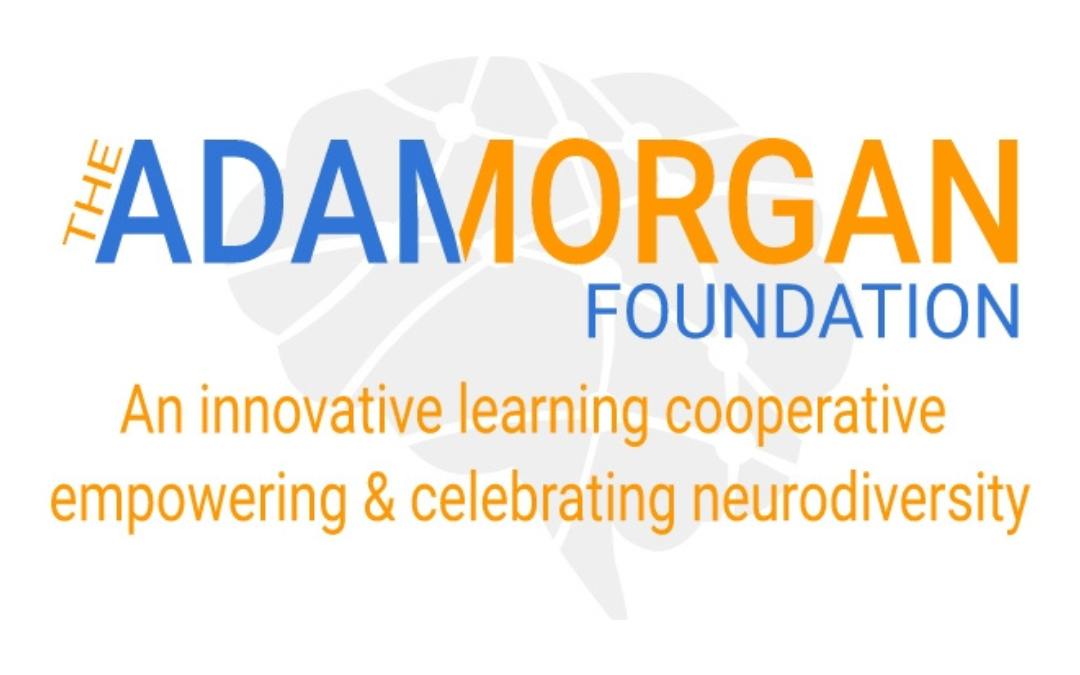
After the 18 months of the pilot program, the post-assessment results were undeniable. Their self-confidence, self-reliance, love of learning, and being able to connect what they were learning to real-life situations that meant something to them were making a difference in their lives. The staff reports gaining new insight into what their clients can do, increased self-confidence and job satisfaction, and new communication methods that have increased their ability to understand their clients better. Technology is a tool for everyone, the real challenge is looking inside ourselves and challenging our beliefs, values, and attitudes about ourselves and others.
The staff and clients have shared some of their experiences with us, Deanna Robinson (ACM) shares, “This opportunity has impacted my job significantly. I can understand my clients better and understand how they are feeling.”
A client, Daniel states, “AMF Tech 4 Independence program has changed everything for me. I feel happier and like people hear me. I still have a lot to learn and need staff and others to learn too. I learn the most from Rachel when she comes.”
Another client, Sean Rogers shares, “Prior to starting the AMF independence program, I did not come out of my room much. I did not know how to use much technology. I got a cell phone and I used it with the help of my staff. My confidence has grown so much this past year, that I have even gone on a few dates.”
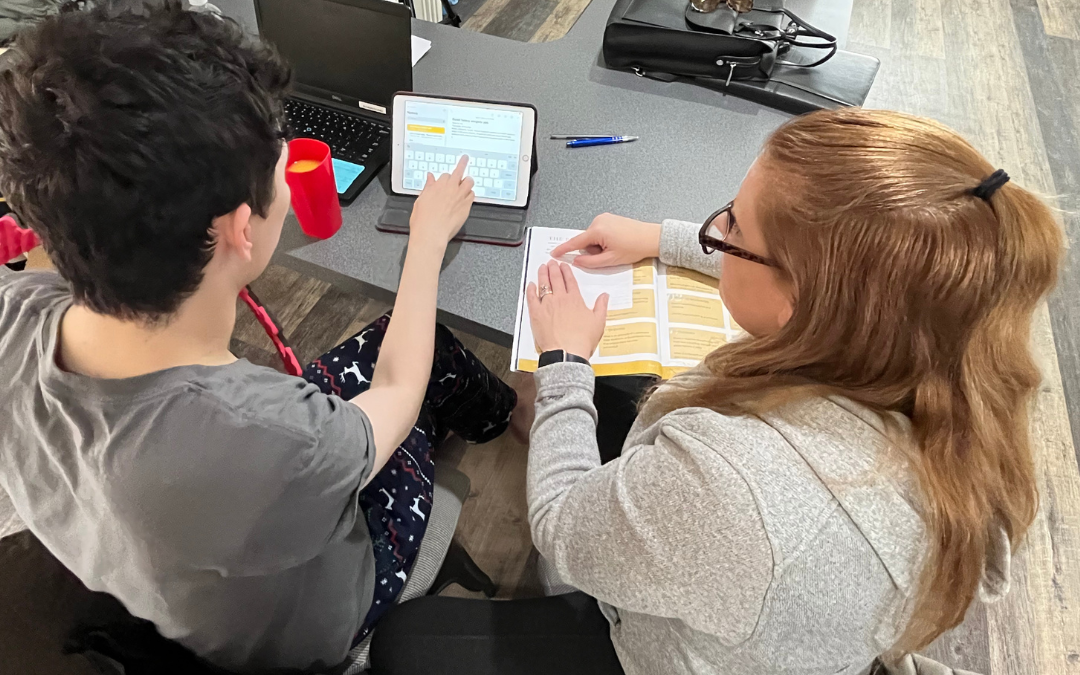
A client manager, Susan G shares, “The training is specialized for each client depending on their current technical knowledge. If staff is not familiar with the technology, they learn right along with the clients. It is something they can do together, and it improves the bond that we share with the clients.”
Pat H., a client, shares, “The technology 4 independence program has really increased my independence. I am more confident about advocating for myself. I have been wanting my own cell phone and am finally advocating for it and it looks like I will be getting it soon!”
Cathy Pritchett states, “This has such an impact on the staff. Rachel and Susan are great with the clients and at explaining new concepts to staff as they work with the clients. In the current state of the staffing crisis, this has been an added benefit.”
“For those without a disability, technology makes life easier; for those with a disability, technology makes life possible!” -Dr. Rachel C. Morgan
